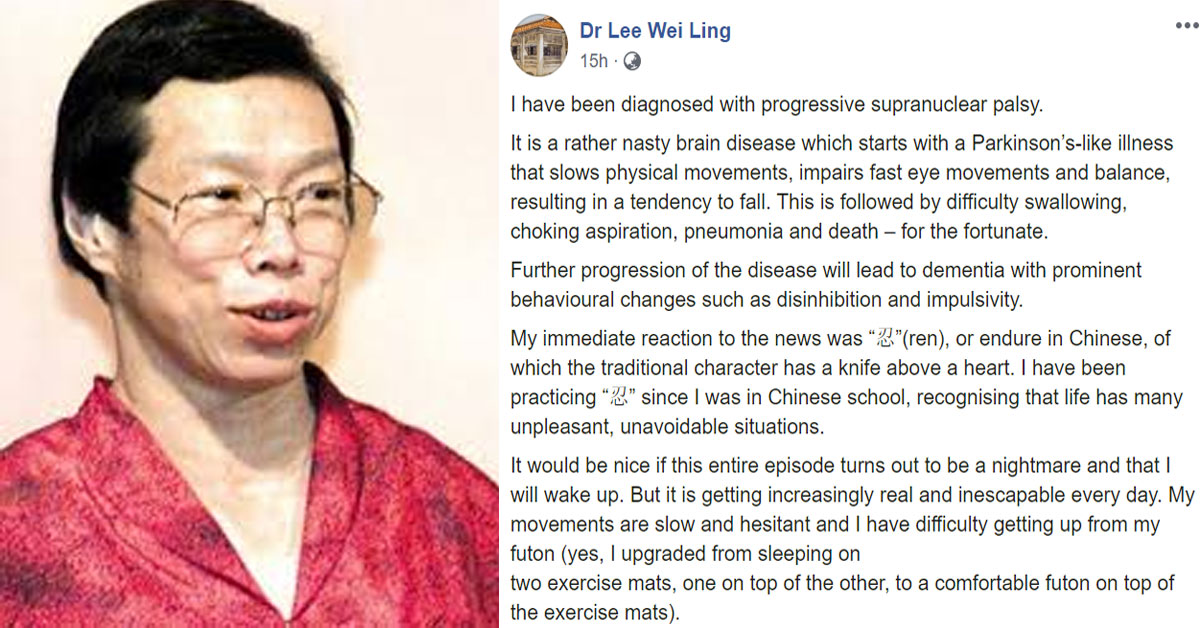Today (9 Aug) is National Day, but while some are celebrating the country’s 55th birthday, others have received some awful news.
On Saturday night (8 Aug), Lee Wei Ling, sister of Prime Minister Lee Hsien Loong, revealed that she had been diagnosed with a rare degenerative brain disease.
Progressive Supranuclear Palsy
Lee said she’s suffering from progressive supranuclear palsy (PSP), which she described as a “nasty brain disease which starts with a Parkinson’s-like illness”.
The 65-year-old, who’s a neurologist, said the disease will initially slow physical movements, impairs eye movements, and affect one’s sense of balance.
This could later lead to difficulty swallowing, pneumonia, and death.
If one manages to survive the later stages of the disease, PSP patients could experience dementia and prominent behavioural changes such as disinhibition, which is the inability to inhibit inappropriate behaviour in social situations.
Lee said her immediate reaction to the news was that she’ll endure the disease with resilience, but that dealing with it is an everyday struggle.
“It would be nice if this entire episode turns out to be a nightmare and that I will wake up. But it is getting increasingly real and inescapable every day.”
She said she’s already experiencing some symptoms of the disease, such as slowness and difficulty when moving.
A Disease That Gets Worse Over Time
Experts are still unsure as to what causes PSP. What we do know is that it occurs when brain cells in an area of the brain stem become damaged.
According to Hopkins Medicine, PSP is more common in men than women, and usually affects people in late middle age or older.
The disease is called “progressive” because, as Lee, said, symptoms will keep worsening over time.
While the disease itself isn’t fatal, it could lead to complications that could be, such as choking during eating, and pneumonia.
It’s often hard to diagnose PSP because it may mimic Parkinson’s disease or an inner ear infection in its early stages.
The symptoms most typical of the disease at the start are trouble balancing and an inability to control or move the eyes.
No Cure or Treatment
Sadly, there is currently no cure or effective treatment for PSP, though there are ways to manage the disease.
Medicines which are used to treat Parkinson’s are often administered to PSP patients, and some antidepressants and physical therapy may relieve symptoms.
Many patients do not respond to medications, however, according to the National Institute of Neurological Disorders and Stroke (NIH).
According to NIH, only about 3 to 6 in every 100,000 people worldwide have PSP. Scientists are still searching for better ways to manage the disease.
